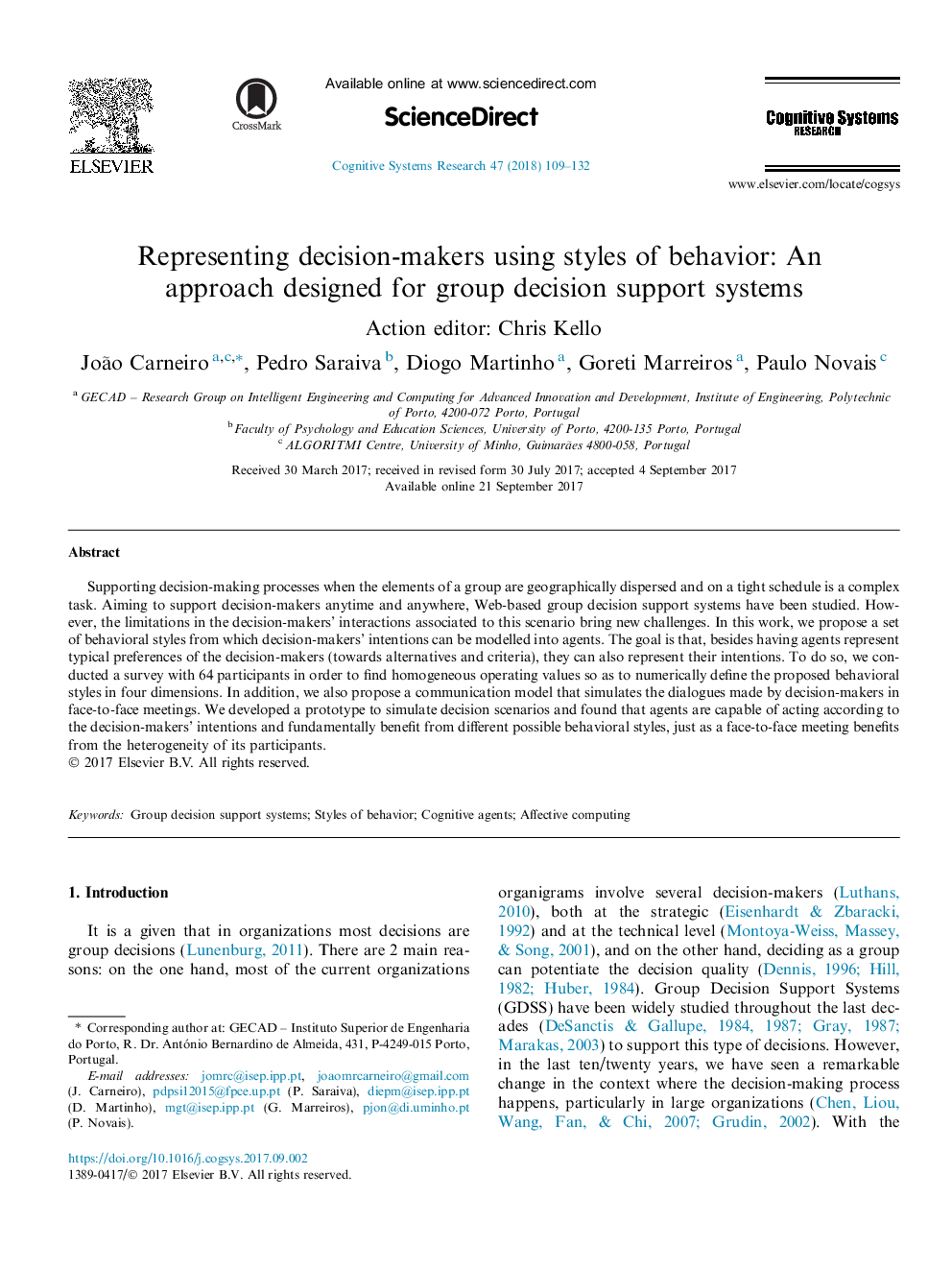ترجمه فارسی عنوان مقاله
نمایندگان تصمیم گیرندگان با استفاده از سبک رفتار: رویکرد طراحی شده برای سیستم های پشتیبانی تصمیم گیری گروهی
عنوان انگلیسی
Representing decision-makers using styles of behavior: An approach designed for group decision support systems
| کد مقاله | سال انتشار | تعداد صفحات مقاله انگلیسی |
|---|---|---|
| 123756 | 2018 | 24 صفحه PDF |
منبع

Publisher : Elsevier - Science Direct (الزویر - ساینس دایرکت)
Journal : Cognitive Systems Research, Volume 47, January 2018, Pages 109-132
ترجمه کلمات کلیدی
سیستم پشتیبانی گروه تصمیم گیری، سبک رفتار، عوامل شناختی، محاسبات عاطفی،
کلمات کلیدی انگلیسی
Group decision support systems; Styles of behavior; Cognitive agents; Affective computing;

